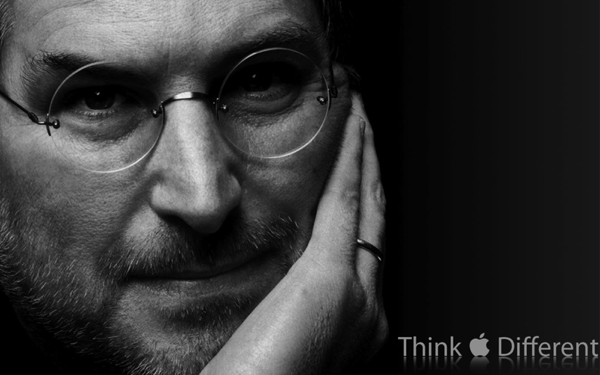What words come to mind when asked to describe Microsoft today? Cool, stylish, revolutionary, and innovative are probably out of the question. However, those words could easily be used to describe Apple. So maybe the brains at Microsoft could learn a thing or two from one of the few brilliant CEOs of our times, who just so happens to be the leader behind Apple’s success — Steve Jobs.
Problem #1: Designers, Designers, Designers!

Let’s be real: Microsoft’s products aren’t particularly well-known for their design — they simply aren’t on par with their competition’s offerings. Sure, there was a time when layering in every possible option, button, gizmo, menu bar, and whatnot was all the rage, but those times are long gone. People are looking for something different. That difference is in the design.
People are now willing to pay a huge premium for a well-designed product, and Apple’s fan base (and sales numbers) is living proof of that. But Microsoft hasn’t caught on to this trend. The company has fallen so far behind the times that it has to make one question if Microsoft has had any feasible concept of what design is for most of the past decade.
Furthermore, Microsoft’s focus on developers (developers, developers!) has always been a priority for the company, but computers and software programs are no longer unbelievably complex or used by only the geekiest among us all. It’s now expected that younger (and, in many cases, older) people are computer literate. These people want product designs that are suited towards meeting their needs and getting the job done.
Lesson From Steve
Steve Jobs realized that there is a certain group of people who prefer practicality and beauty over functionality. It might come off as a bit dictatorial, but today’s consumers are increasingly willing to forgo the comfort of control, openness, and customization for an overall improved experience. Apple’s designers have changed the expectations and quality in product design, and Microsoft would be wise to explore these trends — especially if they intend on remaining competitive in the eyes of consumers for the long term.
Problem #2: Lack of Focus

Microsoft has a tendency to create many experiments, products, and concepts, but how many of those turn into successful and profitable endeavors? Very few, just like the Kin, the Courier, and the Zune.
Sure, these projects and experiments are interesting — and it is fun to envision the future of technology — but these pet projects are doing little, if anything, for consumers today. More importantly, it’s a drain on the company’s resources and bottom line. If it isn’t generating consumer interest or revenue, what is the point?
Admittedly, Microsoft has plenty of cash to burn, but this money should be considered as a finite resource, especially for a company that is being dominated by its competition in the consumer marketplace. It also doesn’t help that Microsoft’s revenues have suffered lately from the declining economy.
Lesson From Steve
Steve Jobs doesn’t mess around with crazy experiments and unprofitable endeavors. He ensures that his company’s resources are directed towards improving profitable products and creating new products that result in interest from consumers and, most importantly, generate revenues. As iTunes, Mac OS X, Apple TV, iPod Touch, App Store, and iPhone have revolutionized their respective industries, Microsoft has little to brag beyond its impressive operating system share. So it’s time for Microsoft to knuckle down.
Problem #3: Product Disparity

Another serious issue for Microsoft is that a majority of their products have little connection to each other. This is particularly true with their Internet-based products. Xbox Live, Zune Marketplace, Hotmail, Bing, MSN, and Skydrive are all great products in their own right, but it requires too much of an effort for a user to take advantage of these services with ease.
If you look at larger companies like Apple or Google or smaller companies like Zoho and Facebook, their products have something in common: they tend to work well together, if not seamlessly. They offer a universal experience that helps keep the user interested in all of the company’s various products and services. But Microsoft hasn’t managed to accomplish this, and until the they do, I fear that consumers will continue to leave Microsoft’s products for alternatives that are offered in a more convenient and unified offering.
Lesson From Steve
Jobs has created a single developer and content platform that holds the core of the Apple’s entire future — it is iTunes. He has been executing a strategy to integrate all of Apple’s products into a single platform that is rich with content. It is, in a word, genius (now we know why Mac OS X hasn’t received much love lately and might eventually be phased out). Digital content distribution is the future, and iTunes is in the best position to handle that task. Microsoft doesn’t need to take it as far as Steve Jobs has taken it with iTunes, but there is certainly an impressive lesson here that could be exploited in the future: a single, unified marketplace that combines desktop, mobile, and Web-based products could be huge hit.
Problem #4: Company Image

Finally, brand loyalty is a big part of consumer behavior nowadays. Every company has their loyalists (i.e. fanboys and fangirls), and these people are an integral part of spreading the word about products and services. However, if you asked any tech-savvy teenager or twenty-something to give an example of an impressive technology company, you would be hard pressed to see Microsoft’s name mentioned.
It’s all a perception, and few companies have managed to create an amazing perception of themselves. Apple is cool. Google is cool. Sony is cool. Others, however, haven’t managed to handle their public image: Microsoft is not cool.
Think about it: who actually walks into a store with the sole intention of buying a Microsoft product?
Lesson From Steve
If Steve Jobs has done anything right above all else, creating an impressive image for Apple and himself is it. But Jobs didn’t accomplish this with any one single action: he put in years of effort and consistency to create a company that most can only dream about. Decade-long efforts have constantly produced household-name products year after year, and this is probably the most important lesson that Microsoft could learn from Jobs.





44 User Comments
Reality
This article should be retitled as, “Dear Mr. Jobs, Can I has a free iPhone 3GS cuz my iPhone 4 no workie?”
Robby
3 billion in profits for last quarter….how did MSFT do? Quit hating on a company that obviously knows the mArket.
Even with all these “problems” the iPhone 4 has, its amazing it’s still the only phone on backorder for a month out of the big 3 (evo,droid, iPhone). 1.7 million iPhones sold can’t be ignored.
Matty
I perfer linux on the desktop but, love my ipod and iphone. But iTunes is the worst program i’ve ever been forced to use not to mention after spending alot on movies and music I can only use an apple device with iTunes. I went to banshee, better than wine/itunes but I still cannot buy from apple this way. Wish they at least had a website alternative to itunes. If microsoft did this people would cry monopoly and evil, ect.
As far as their attention to developers remember there would be no app store without us developers. Before they switched to bsd it was very hard to find good professional apps that weren’t extremely pricey for a mac. The shareware I used to get was not worth the $10 they asked and the idea of paying 500 for office was crazy.
Phil
Apple fanboy much? Apple has the worst company image I can think of, even beating out Toyota and BP. It’s like they don’t want anyone to like them.
Yvo
Pete – Wake up from your dream man, I think Apple has no interest in staying in the desktop market any longer. They aren’t interested in competing as hard anymore in the traditional computer market. Their desktop OS has They may only have limited market share in this market but they are a serious competitor in the smart phone market and portable music player market. Next gen consumer computers are ones you carry around in your pocket, not in your backpack, satchel, purse, etc.
Lastly, say what you want about the iPhone 4, but 3 million sold in only 9 markets. Name one other device that sold that many devices that quickly.
I’m not an Apple fanboy but I am calling absolute shenanigans on your logic as they completely contradict the current market, financial results and ways things are heading.
Didn’t think so.